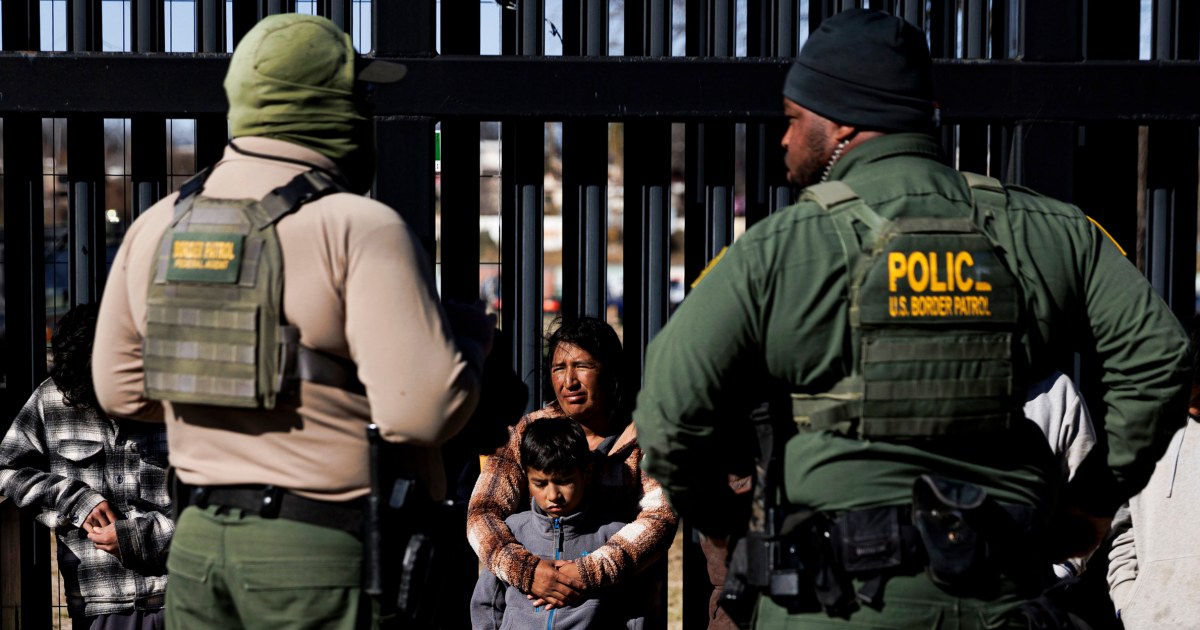World
Texas aims to become key part of Trump’s immigration plans

For the past four years, Texas has made itself an adversary of the White House on immigration.
Under Gov. Greg Abbott, a Republican, the state has flexed its law enforcement power at the U.S.-Mexico border, added miles of razor wire barriers to deter crossings and bused more than 100,000 migrants to sanctuary cities in Democratic states, all in defiance of the Biden administration.
But as President-elect Donald Trump heads back to the White House next month, touting a plan to carry out the largest deportation of immigrants in U.S. history, Texas is preparing to take on a new role in Washington: ally.
Already the state has offered up a 1,402-acre ranch on the Rio Grande as a potential site for detention facilities, and it is ready to share its playbook for muscling through immigration policy changes, such as its executive order requiring hospitals to ask about a patient’s immigration status and a measure that would allow police officers to arrest migrants and empower state judges to order deportations.
Texas Land Commissioner Dawn Buckingham last week announced an initiative to identify land within the 13 million acres owned by the agency that the Trump administration could use for deportation operations, including the recently acquired ranch along the Rio Grande.
“We’re actively looking at the properties we have around the state and seeing if it works for the Trump administration,” Buckingham told NBC News. “We’ve identified several properties in the El Paso area that we think are also a good, natural fit,” as well as in some urban areas.
Buckingham also said that Texas would look to help guide the incoming administration’s policies on border security.
“We’ve come up with a lot of ingenious ways to take these criminals to task, and we are happy to help anybody who is looking for advice or policies that seem to be helpful,” she said.
The Trump administration is listening.
“You cannot have strong national security if you do not have border security,” Tom Homan, Trump’s former acting U.S. Immigration and Customs Enforcement director and incoming “border czar,” said at an event with Abbott last week. “There is unprecedented success in Texas. This is the model we can take across the country.”
Abbott, at the same event, said that his state was “going to be doing more and faster than anything that’s ever been done to, first of all, regain control of our border, restore order in our communities, and also identify, locate and deport criminals in the United States of America who have come across the border.”
Texas’ rise as a prominent ally to the incoming Trump administration follows years of challenging and undermining President Joe Biden’s efforts on immigration.
“Texas is a natural leader because of everything they’ve accomplished in the last four years with little public or political pushback,” said Andrea Flores, the vice president of immigration policy and campaigns at FWD.us, which describes itself as a bipartisan organization that advocates for immigration reform.
One of the most visible forms of opposition was the busing of more than 100,000 migrants from the border to sanctuary cities like New York, Chicago and Denver — a move that overwhelmed those Democratic communities, strained their resources and led to growing anti-immigrant sentiment around the country that seeped into the presidential campaign.
The strategy led to “a governor sowing intentional chaos against other states with no one stepping in to try and stop it,” said Flores, an immigration policy advisor to the Biden and Obama administrations, who criticized the lack of federal intervention. “The cities’ crisis eclipsed the border crisis, and it led to tremendous backlash.”
Other Texas efforts under Biden could serve as a model for what’s to come under Trump, some experts said.
“To the extent that there’s coordination, or even cooperation, between the federal government and a state like Texas, it’s possible that the sky’s the limit,” said Rick Su, a law professor at the University of North Carolina. “This may be the missing piece in what I think, at least for the Trump administration, what they intend to do.”
In 2021, Abbott declared a disaster at the border, opening the door to launch his Operation Lone Star to pay for the busing and provide $11 billion to deploy thousands of members in the Texas National Guard and Texas Department of Public Safety to the southern border and create new barriers, including 100 miles of razor wire and buoys in the Rio Grande.
Earlier this year, Abbott signed an executive order requiring hospitals to ask about a patient’s immigration status and track the amount of costs from treating undocumented immigrants.
“It has been four years of advancing an agenda that we are very likely to see multiple states do the same under the Trump administration,” Flores said. “Texas has given us a preview of what was to come.”
The state also passed a law that challenged federal immigration authority and is “arguably one of the most unprecedented sort of modern laws with regard to immigration,” Su said. The law, known as S.B. 4, would allow police officers to arrest migrants and impose criminal penalties. It would also empower state judges to order the deportation of people to Mexico. The measure’s implementation has been on hold while it is challenged in court.
But legal experts, including Su, are watching to see if Trump’s Department of Justice backs off from that and other legal challenges on Texas’ immigration policies that were undertaken by the Biden administration.
“In some ways, that is just the beginning,” Su said.








